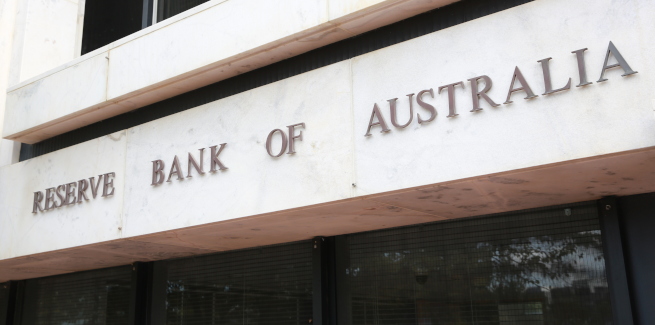All 31 economists surveyed by rate comparison website finder.com.au have predicted a rate hold from the Reserve Bank of Australia (RBA), which is set to announce its verdict later today following its monthly board meeting.
Economist at Corinna Economic Advisory Saul Eslake noted that while economic growth is “above trend”, weaker than expected labour market and inflation indicators would dissuade the central bank from lifting the cash rate.
“[The] RBA has made it increasingly clear that it is in no hurry to start raising rates,” Mr Eslake said.
“Although economic growth is now running ‘above trend’, unemployment and underemployment are still higher than the RBA wants, and inflation is lower than the RBA wants, and it expects progress on both of these fronts to be only ‘gradual’.”
Mr Eslake also claimed that the RBA “seems unconcerned” by out-of-cycle rate increases from lenders, including three of the big four banks.
Mortgage Choice spokesperson Jacqueline Dearle added: “I expect the RBA to hold the official cash rate at 1.5 per cent in October due to a combination of factors close to home, such as low inflation, an acceptable unemployment rate and stagnant wage growth.”
Ms Dearle also claimed that US President Donald Trump’s new wave of tariffs on Chinese imports, and the effect that rising funding costs may have on Australian mortgage rates, could also have an influence on the RBA’s economic forecasts.
“On an international level, [President Trump’s] trade tariffs on Chinese imports may create a drag on global growth, which may impact on the Australian economy and jobs,” the spokesperson said.
“Additionally, further upward pressure on the cost of wholesale borrowing for our own financial institutions is expected, as US Federal Reserve chairman Jerome Powell has told Congress he wants to increase America’s interest rates.
“This may result in further out-of-cycle rate rises which will have a ripple effect across our economy and impact Australian property owners. Combined with tightened lending standards and a softening housing market, this will also help anchor the rate for now.”
Further, despite also predicting a rate hold, senior economist at AMP Capital Shane Oliver warned: “While economic growth ran above trend over the year to the June quarter and growth should be supported by business investment, infrastructure spending and exports going forward, uncertainty remains around the outlook for consumer spending, house prices are likely to fall further and wages growth and inflation remain low.”
Additionally, Dr Andrew Wilson from My Housing Market claimed that the case for a rate cut from the RBA may be “strengthening”.
“Although recent data remains positive overall with lower jobless rate, declining budget deficit and a steadying dollar, concerns are increasing regarding rising trade barriers imposed particularly by US and China.
“Increased fuel costs will also be concerning the RBA, with wages yet to rise as expected. Rates will remain on hold and the case for a near-term cut — although clearly an outside chance — is strengthening.”
Property prices to fall by 8 per cent by 2021
The finder.com.au survey also revealed that economists are expecting property prices to fall by 9 per cent across Australia’s capital cities by 2021.
Economists predicted that Sydney would experience the sharpest downturn (8.2 per cent), followed by Melbourne (8.1 per cent), Brisbane (7 per cent) Perth (5.3 per cent).
Economists predicted that prices in Adelaide, Darwin and Hobart would fall by 5 per cent by 2021.
Finder’s insights manager, Graham Cooke, said: “With the highest median house price in the country, it’s not surprising that Sydney is expected to be hit hardest by the housing downturn.
“If the predictions hold true, nearly $80,000 will be knocked off the average house value by the end of 2021.
“While this makes it harder for existing home owners to build up equity, it could make Sydney an attractive market for first-time buyers who have a deposit saved.”
Mr Cooke continued: “If you’re thinking of getting into the market over the next few years, hold out until prices have dropped further and use this time to save for your upfront costs.
“Right now, there’s no need to jump on the first suitable property you see; you should be looking for value before you lay down the cash. Waiting a few years could potentially save you thousands of dollars.”
Finder also revealed that based on its Economic Sentiment Tracker, housing affordability sentiment improved from 23 per cent to 46 per cent.
[Related: More majors pull interest rate trigger]
 ;
;

Comments (0)